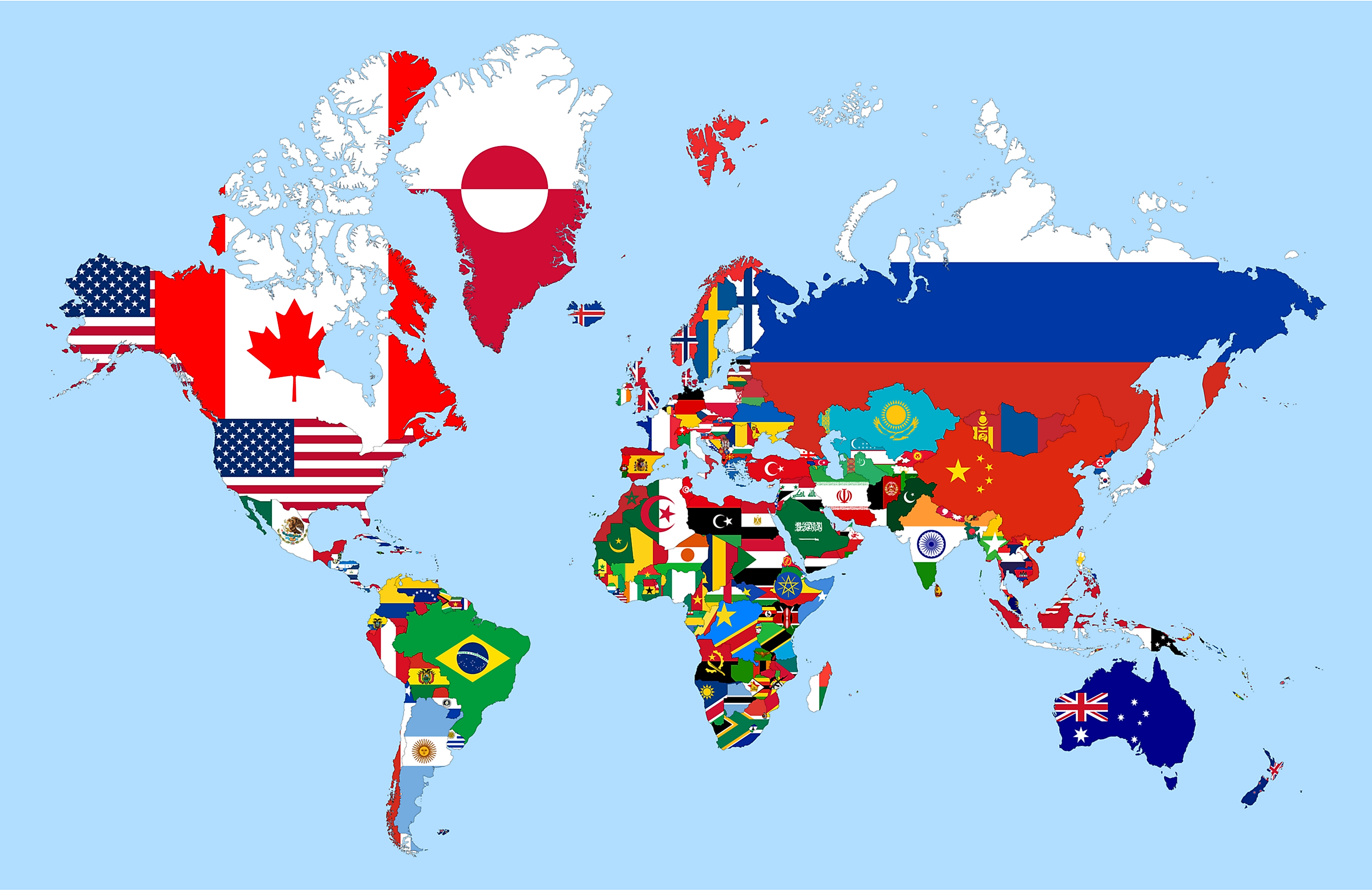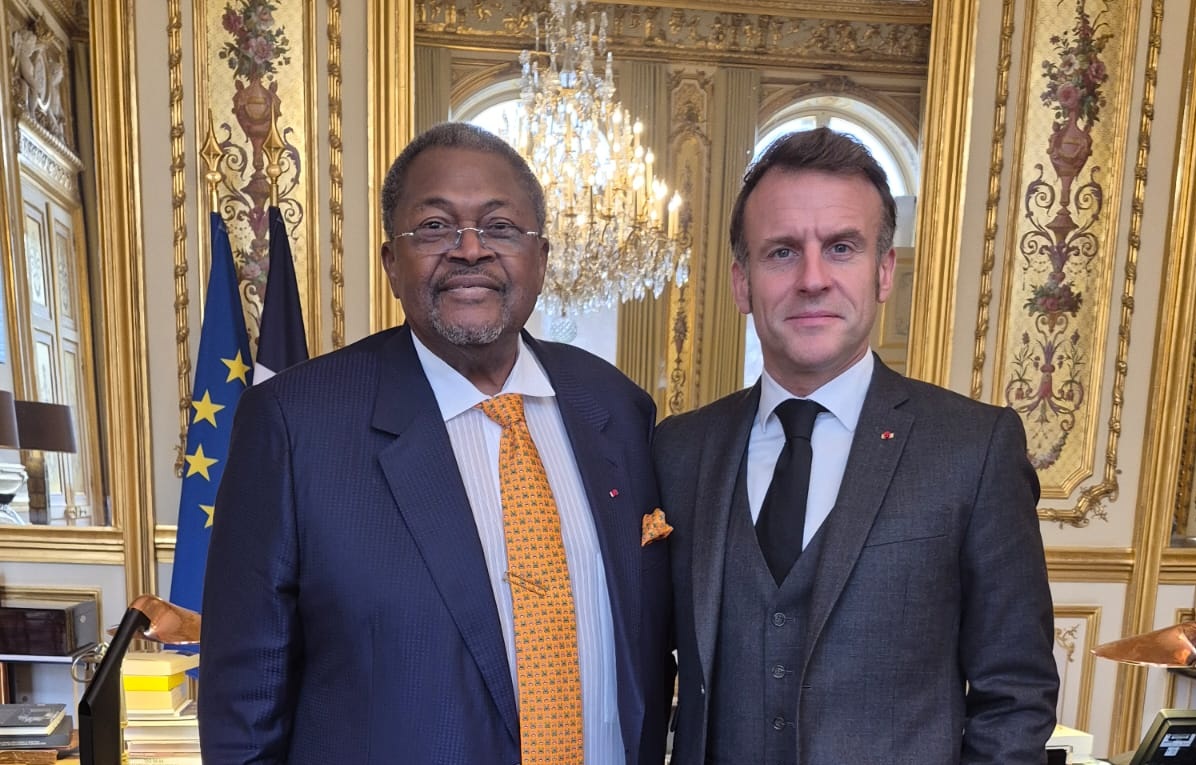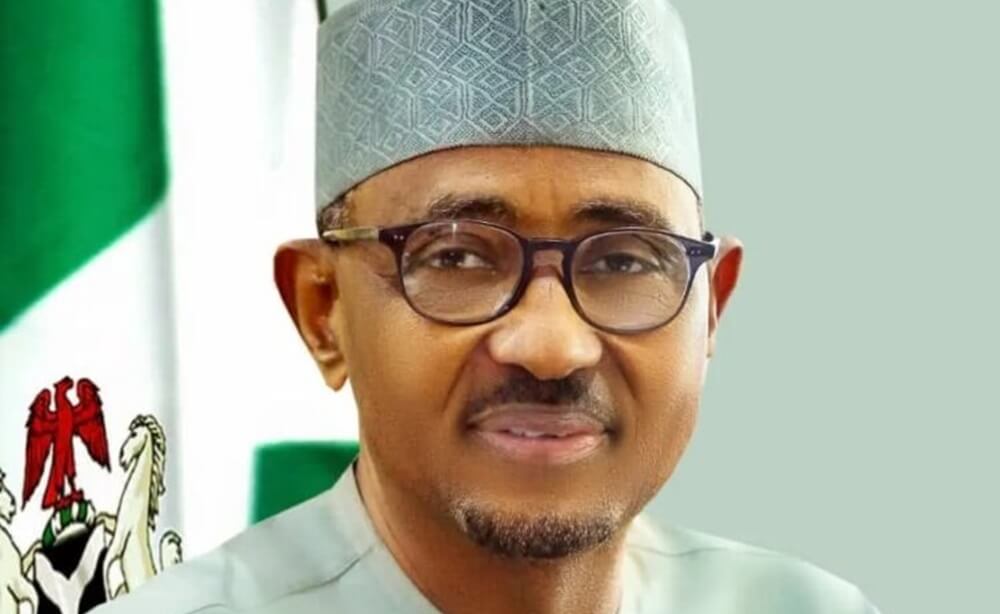By Eric Elezuo
Like previous years, the year 2022, can also qualify as a watershed in global history, with special emphasis to Nigeria, for which it was a prelude to the much anticipated 2023 political change over as President Muhammadu Buhari’s administration draws to a conclusive end.
To many, the year was an avatar, and to many others, it was simply an albatross. It all depends on the side of the divide one is.
RUSSIA INTERVENE IN KAZAKHSTAN CRISIS
The signs that 2022 was going to be a clear cut marathon began to manifest as early as the second day of the month when protests erupted in Kazakhstan following the government’s lifting of price controls on liquefied petroleum gas (LPG). The Kazakh President Kassym-Jomart Tokayev, took a drastic of inviting Russia to help in quelling the unrest (both countries as well as several other former Soviet republics are members of the Collective Security Treaty Organisation, or CSTO). Four days later, the so called and Russian “peacekeepers” arrived, and their brief resulted not only in the arrests of thousands and killing of hundreds, but also planted dangerous acquisition scheme in the mind of the world power.
ASUU STRIKE
Back in Nigeria, the centre was not holding in the academic sector as the Academic Staff Universities Union (ASUU) was in a logjam with Federal Government over previous agreements yet to be implemented by the government. On February 14, 2022, the body embarked on strike action after many warnings to press home the demand for improved funding for universities, a review of salaries for lecturers, among other issues. The strike kept students at home for 10 months, where in-between, the federal government floated two other academic groups to decimate the body just as the Minister of Labour and Employment, Chris Ngige, after what he described as “failed negotiations” dragged the striking lecturers before the National Industrial Court.
BUHARI SIGNED ELECTORAL AMENDMENT BILL
President Muhammadu Buhari signed the Electoral Amendment Bill into law in February 2022 after rejecting it five times – citing reasons that ranged from the cost of election, insecurity, and drafting errors to proximity to the date of elections.
The legislation allows INEC to review results made under duress or financial inducement, extends the time for campaigns from 90 to 150 days, and provides for the use of technology to determine the mode of voting and transmission of results. Pundits believe the law can help manage situations where inaccurate results are returned, expand the opportunity for politicians to visit the nooks and crannies of the country if they so desire and cure the chaotic and vulnerable process of aggregating results.
The Electoral Act requires that parties submit the names of their candidates 180 days before the elections, thereby allowing for the legal resolution of fractious primaries ahead of the voting day. In signing the Electoral Act, Mr Buhari also requested the section that precludes political office holders from participating in party primaries and voting during congresses be deleted, as it breaches participation rights. However, the National Assembly refused to make this amendment. This meant that several of Buhari’s ministers were unable to contest for elective office until they first resigned from their positions.
RUSSIA INVASION OF UKRAINE
Events in late 2021 had suggested a possible invasion of Ukraine by Russian forces as predicted by U.S. and British officials. Much as these predictions were not taking seriously by many European leaders, including Ukrainian President Volodomyr Zelensky, on February 24, 2022, Russia launched a “special military operation” that it said was needed to force the “demilitarization and denazification of Ukraine.” To the surprise of the Kremlin and most military experts, Ukraine withstood the initial onslaught and then began to turn back Russian forces. The war still rages with cities like Mariupol falling and massive war casualties recorded as in the case of the Bucha massacre. The case was treated as outcome of war situation
ABUJA-KADUNA TRAIN ATTACK
A major terrorist attack occurred on March 28, 2022 when heavily armed men emerged from the Kateri-Rijana forest of Kaduna State, setting off explosives to derail an Abuja-Kaduna train with 362 passengers. After the attack, punctuated by sporadic shootings, which lasted for hours, the attackers abducted over 100 of the passengers, killing at least eight people.
The rail axis has been reopened after many months of closure while the last batch of the abductees have just been released.
EMERGENCE OF NIGERIA’S POLITICAL ERA
As the world to find a suitable resolution to Russia/Ukraine crises without causing a world war, the Nigerian environment was heated with political maneuvers to ascertain who flags the major parties, and other parties flags in various elective positions as the 2023 gets closer. The ruling All Progressives Congress (APC) and the main opposition Peoples Democratic Party (PDP) were riding high as the party of choice with 40 aspirants picking up the APC presidential forms at a whopping N100 million while 17 aspirants picked the PDP’s which cost N40 million, among other equally exorbitant positions.
During the season, a lot of intrigues unfolded as politicians struggle to out do one another. Some of them include:
ATIKU’S VICTORY, CRISES IN PDP AND G5 GOVERNORS
Prior to the presidential primaries of the two major political parties, Nigerians, including members of the political class, had clamoured for a southern president to replace Buhari, who is of northern stock. Consequently, the emergence of Atiku Abubakar, and the manner of his emergence, created a hole in the party leading to the withdrawal of Rivers State Governor, Nyesom Wike from supporting the party. Wike’s lost prompted him to demand the resignation of the party chairman, Iyorchia Ayu as both the candidate and chairman were from the same region. His principles berthed the Group of Five Governors (G5 Governors), which later metamorphosed into Integrity Group as it accommodated much more than the five governors of Rivers, Abia (Okezie Ikpeazu), Benue (Samuel Ortom), Enugu (Ifeanyi Ugwuanyi) and Oyo (Seyi Makinde).
Wike has denied that his reason for the protest is beyond the announcement of Delta State Governor, Dr Ifeanyi Okowa, as Atiku’s running mate, but the need to maintain equity and fairness in the party structure.
But with the refusal of Ayu to step down from his position, Wike has not ceased to open several Pandora boxes, taking Ayu and the PDP leadership to the cleaners. But the party had maintained a dignified silence
The G5 governors have been meeting within and outside the country on political matters. While peace moves have been made in the past by the party and its presidential candidate, the group have blatantly refused to let go. However, they have failed to name their presidential candidate till date.
POLITICAL RETIREMENT OF OSINBAJO, AMAECHI, LAWAN
With the emergence of Senator Bola Ahmed Tinubu as the presidential flag bearer of the ruling APC during the June 6 primary that appeared orchestrated with many presidential aspirants (Kayode Fayemi, Ibikunle Amosun etc) stepping down, the likes of Vice President Yemi Osinbajo, former Minister of Transport, Rotimi Amaechi, and Senate President, Ahmad Lawan seem to kiss goodbye to politics, at least for the time being. Their attempt to try their luck at clinching the APC presidential ticket came with a huge cost. Osinbajo lost his friendship to his his erstwhile boss and political godfather, and his supporters; Amaechi lost his ministerial position, and has not been heard ever since while Lawan lost his senatorial seat. These men, and many others in their shoes may likely remain irrelevant in the next dispensation, especially if Tinubu emerges winner. but lost to Tinubu. Many political analysts and opinion leaders believed that the Vice President shouldn’t have contested against his erstwhile boss and political godfather.
EMEGERCE OF PETER OBI AND ‘OBIDIENT’ MOVEMENT
The year 2022 unmasked a new challenge to the dominance of APC and PDP in the political space of Nigeria. The former Governor of Anambra State, Peter Obi had announced his resignation in a letter titled, “Resignation From PDP and Withdrawal from the Presidential Contest” addressed to the PDP National Chairman, Iyorchia Ayu, dated May 24. Obi, who was the party’s running mate to Atiku in the 2015 presidential election, attributed the decision to recent developments within the PDP. He later joined the Labour Party amid speculations of teaming with Rabiu Kwankwaso’s New Nigeria Peoples Party (NNPP). and emerged as the presidential candidate in May 2022. Before then, Obi, who was a presidential aspirant under the PDP, resigned from the main opposition party and also withdrew from the presidential race on the platform of the party on May 25.
Obi’s emergence as the LP flagbearer created a sort of third force as his popularity and LP grew sporadically, and creating a large turn out of followers, tagged ‘Obidients’ online and offline. His choice of a technocrat in the person of Yusuf Datti-Ahmed, further upgraded his reception.
EMILOKAN AND APC’S MUSLIM/MUSLIM TICKET
The choice of a Muslim as the running mate of Tinubu, whose emilokan (it’s my turn) slogan, has become his identity, was another hallmark of the political climate of 2022. Prior to the announcement of former Borno State governor Hashim Shettima as Tinubu’s presidential running mate, discourses had been held warning against the move. When it eventually came, most Nigerians, especially the Christian community felt slighted with the likes of former Secretary to the Federal Government, David Babachir, and former Speaker of the House of Representatives, Yakubu Dogara, abandoning the party, taking their followers with them. Tinubu and the APC did not renege in the decision, claiming inability at finding a strong northern Christian to take up the challenge.
ADEMOLA ADELEKE DANCED HIS WAY INTO OSUN GOVERNMENT HOUSE
A major landmark in the political intrigues of 2022 was the defeat of incumbent governor of Osun State, Gboyega Oyetola by PDP’s Ademola Adeleke, known as the dancing Senator in the July 2022 governorship election. Adeleke polled a total of 403,371 votes, to beat Oyetola who garnered 375,027 votes in the keenly contested race. The PDP won 17 of the LGAs, while the APC recorded more votes in the remaining 13. The campaign era saw popular singer, David Adeleke, popularly known as Davido, playing a major role to see his uncle emerged victorious.
THE TRAVAILS OF SENATOR IKE EKWEREMADU
A scene from a movie, Senator representing Enugu East in the upper legislative chamber, Ike Ekweremadu, and his wife, Beatrice, in June, were nabbed by the Specialist Crime Team of the Metropolitan Police in London. They were arrested for alleged conspiracy to harvest the organs of a child to cure the senator’s daughter, who needed an organ transplant.
Ekweremadu and his wife were arrested at Heathrow Airport in London en route to Istanbul in Turkey. While Beatrice has been released, Ekweremadu is currently facing a legal battle in the UK. If convicted, the lawmaker may get a maximum of a life sentence or 12 months imprisonment or a fine, or both on summary conviction under the United Kingdom’s Modern Slavery Act 2015. Ekweremadu has since said that his travails in the UK since June has political undertone, pointing accusing fingers at the Economic and Financial Crimes Commission (EFCC), which has confiscated his property while in detention.
ASSASINATION OF FORMER JAPANESE PRIME MINISTER
On July 7, 2022, former Japanese Prime Minister, Shinzo Abe, was shot at and killed while campaigning sending shock waves down the spines of the political world. His killing led to the reshuffling of the newly elected cabinet.
BRITAIN’S THREE PRIME MINISTERS IN THREE MONTHS
Britain made more history as the country produced three Prime Ministers in a space of to months. With the resignation of Boris Johnson of July 7 as a fallout of the ‘partygate’ crisis, Liz Truss was elected to replace him as the new PM. However, Truss administration couldn’t stand the test of time as the cabinet packed up within two months as Liz resigned, paving the way for Rishi Sunak to take over
FLOODS IN PAKISTAN, NIGERIA
With the impact of climate change fast affecting the world, countries like Pakistan and Nigeria were worse hit. In Nigeria, states like Anambra, Bayelsa, Kogi, Benue among many others were submerged leading to deaths and wanton loss of property and revenue.
QUEEN ELIZABETH II DIED AND PRINCE CHARLES BECOMES KING
On September 8, 2022, official statement from the Queen’s Court announced that Queen Elizabeth II was ‘comfortable’, signifying that she had died, bringing an end to the longest ever reign in the history of the world. She was the longest reining British monarch, having held sway for 70 years. Consequently, Prince Charles was pronounced King, and he supervised the burial of his mother.
MAHSA AMINI KILLED SPARKING RIOTS IN IRAN, OTHERS
For “inappropriate dress”. 22-year-old Kurdish-Iranian woman was arrested by the Police, only to die a few hours later on September 16. The death erupted protests unknown to Iran since the Islamic Revolution of 1979, which toppled the Shah and established the Islamic Republic. The riots have not abated till date, drawing sympathy across the world. Much as death toll continues to rise, the Iranians are not giving up until the theocratic experiment of over 40 years ends.
ISLAMIC COUNTRY HOSTS WORLD CUP FOR FIRST TIME
An Islamic nation, Qatar, for the first time in the history of the World Cup, hosted the world’s most watched fiesta. The event that lasted between November 20 and December 18 saw Argentina beating France in a penalty shootout after a three all draw.
KILLING OF BOLANLE RAHEEM BY TRIGGER-HAPPY COP
The nation was jolted on Christmas day as news of the killing of a Lagos-based lawyer, Mrs Omobolanle Raheem, made the rounds. She was shot at and killed instantly by a policeman, ASP Drambi Vandi, at a roundabout in the Aja area of Lagos. The killing sparked controversy, necessitating in the Commissioner of Lagos, Abiodun Alabi, deploying all men and officers of the Ajiwe Police Station.
THE DEATH OF SOCCER LEGEND, PELE
After battling cancer for a few years, world’s greatest of all times in footbal, Edson Arantes do Nascimento, popularly known as Pele bowed to death on December 29, 2022. His body laid in state on Monday, January 2 and Tuesday, January 3 for the world to pay final respects before he was interred on the ninth floor of a cemetery.
DEATH OF THE POPE THAT RESIGNED, BENEDICT XVI
The events of 2022 ended on a note of gloom as the announcement of the death Pope Benedict XVI, the first Bishop of Rome to retire in six centuries, was made. The successor of Pope John Paul II retired from the Throne of Peter in 2013, but remained a revered presence in the Roman Catholic Church and served as a support to his successor, Pope Francis. He has been buried.

 Featured6 days ago
Featured6 days ago
 Featured5 days ago
Featured5 days ago
 Opinion5 days ago
Opinion5 days ago
 Headline4 days ago
Headline4 days ago
 Voice of Emancipation4 days ago
Voice of Emancipation4 days ago
 Headline4 days ago
Headline4 days ago
 News4 days ago
News4 days ago
 Adding Value6 days ago
Adding Value6 days ago














